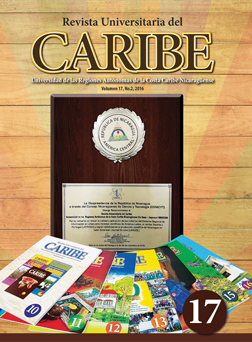Learning communities: a perspective of inclusive education
DOI:
https://doi.org/10.5377/ruc.v17i2.3236Keywords:
Learning communities, inclusive education, dialogic learning, inequalities, risks of social exclusionAbstract
In this article, we analyzed the methodology of learning-communities from an inclusive education perspective. This is a qualitative study with a hermeneutical approach, in which we carried out an analysis of contents of textbooks, scientific articles, press articles, laws, curriculums, training programs and institutional norms. The results certify that the learning-communities methodology plays an important role in the inclusive education, because it takes into account: dialogue and communicative action, dialogic learning, dialogic model, interactive groups and literary gatherings, which allows the improvement of coexistence, capacity building, dialogue and criticism for the construction of an egalitarian, multicultural and solidarity society. Therefore, learning-communities help to overcome inequalities and the risk of social exclusion, as well as the student's tendency to fail.
Downloads
1343
HTML (Español (España)) 325
EPUB (Español (España)) 237
Resumen (Audio) (Español (España)) 185
Abstract (Audio) 174
Downloads
Published
How to Cite
Issue
Section
License
Propietario de los derechos de autor de los artículos: Los autores guardan los derechos de autor.

Esta revista está bajo una licencia de Creative Commons Reconocimiento-NoComercial-SinObraDerivada 4.0 Internacional. Esta licencia permite que otros puedan descargar las obras y compartirlas con otras personas, siempre que se reconozca su autoría, pero no se pueden cambiar de ninguna manera ni se pueden utilizar comercialmente.

